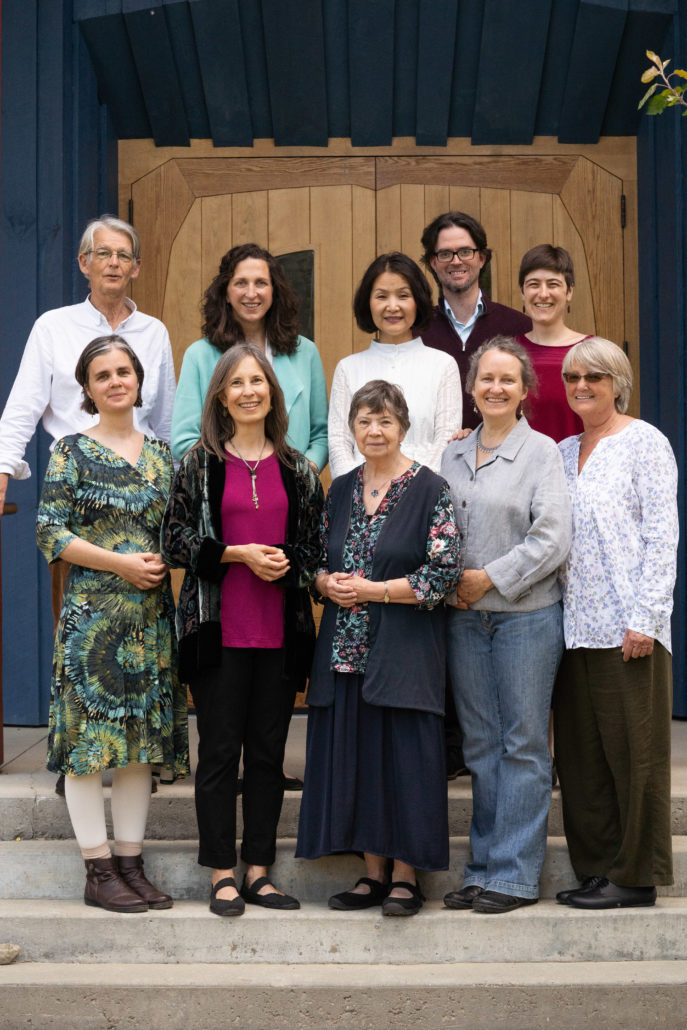Latest News
Kitchen Chat and more…
Kitchen Chat and more…
“I pray for the human beings which You have given me.” (Jn.17:9)
When praying we are never alone. No matter how lonely we are, there are always others who pray with us in silence. We can notice that especially in the Act of Consecration of Man, where our weak attempts are supported from all sides. That is also the actual reason why at the altar we form a community: communal prayer gets wings. The individual forces are not only added together, they multiply, they potentize each other. More than ever it is necessary in our time to work together in prayer. “One single one does not help, but whoever unites himself with many at the right moment.” (Goethe)
In the Act of Consecration, we unite in prayer not only with the visible congregation but also with all “those from whom You received before us Your Son’s offering.” Soon after this sentence is spoken in the Act of Consecration, sounds the Lord’s Prayer. Have we in that moment connected ourselves with the invisible congregation? At any rate, they, the deceased, connect themselves with us.
But more than any other, the Father connects Himself with us whenever we speak a true prayer. In antiquity it was said: “God hears our prayer.” The psalm in which this sentence occurs does not add: God answers our prayer. That is up to God alone. But since Christ lived on earth, He prays with all and for all who want to follow Him. The High Priestly Prayer, spoken by Christ just before He was taken captive, is one great intercession: “I pray for the human beings which You have given me.”
Therefore we trust, even in the greatest loneliness: when praying we are never alone.
Bastiaan Baan, May 30, 2021

Eight new people joined the work of the priest in the Christian Community on May 14, 15 and 16.
They are pictured above with Rev Vicke Von Behr from the central leadership of the Christian Community and Rev Patrick Kennedy of the Seminary in North America. They are listed below with their new sendings.
Bottom Left – Rev Kate Kennedy – Toronto
Rev Elizabeth Majoros – Denver
Rev Lesley Waite – New Zealand
Rev Mimi Coleman – Hillsdale, New York
Rev Victoria Capon – Chicago, IL
Top Left – Rev Anna Silber – Chestnut Ridge, NY
Rev Jong Won Choi – Devon, Pennsylvania
Rev Jeana Lee – Chicago
“And while He said this, He showed them His hands and His side. (John 20: 20)
When hearing the word peace, every person will make some association. More than just an abstract concept, the word evokes images in us. You can see it before you: a peaceful landscape in the light of the setting sun, a still lake under a blue sky, a little child in deep sleep—all of them are pictures we yearn for, exactly because the world in which we live is such a jumble of unrest, chaos, and conflicts. And when words and images fall short, there are always sounds that can perfectly express peace: a lofty symphony, a lovely pastoral, or just a simple lullaby.
If there is anyone who knows what peace is, it is Christ. Not only is He a human being in perfect harmony, but He is also at peace with the world. How in God’s name is that possible? Not only with the world in as much as it is still in a state of harmony but also, and above all, with the disharmony of the world. You can tell by looking at Him. When after His Resurrection He bestows peace on His disciples, He shows them His hands and His side. Whoever receives His peace has to see His wounds, has to see what human beings have done to Him. It is as if with these wounds He wants to say:
My peace is not of this world.
My peace is born out of pain.
Whoever endures the pain with Me,
Whoever has fought the battle with Me,
On them I bestow My peace.
–Rev. Bastiaan Baan, April 11, 2021

